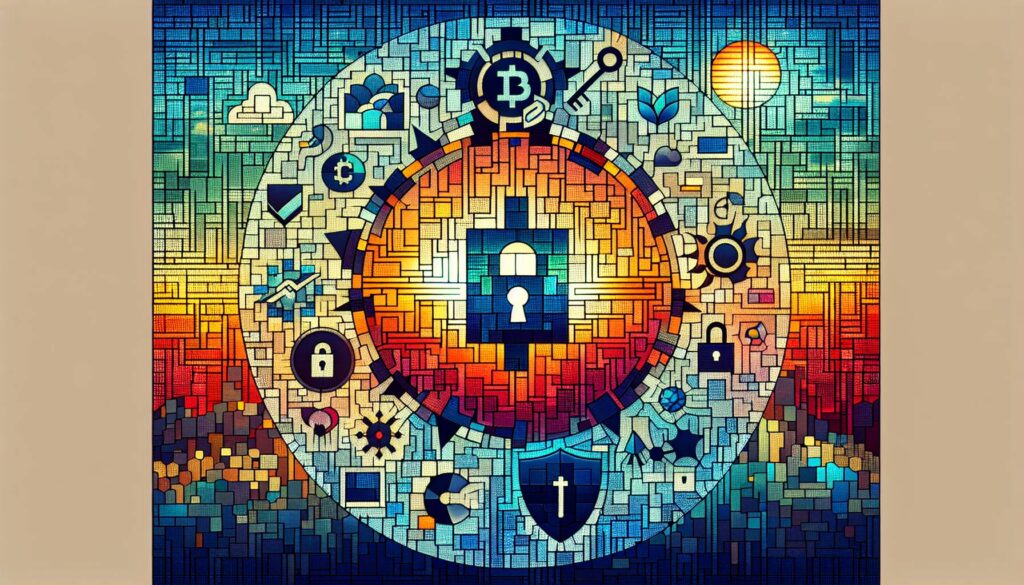In a significant development within the cryptocurrency landscape, Self has successfully raised $9 million to advance its innovative zero-knowledge identity platform. This funding marks a crucial step for the company as it seeks to enhance the security and privacy of digital identities in the blockchain space. Zero-knowledge technology allows users to prove their identity without revealing sensitive personal information, a feature increasingly in demand as digital transactions continue to surge.
Accompanying this funding achievement, Self has unveiled a new rewards program designed to stimulate adoption of on-chain verification. The initiative aims to incentivize individuals and organizations to embrace secure identity verification practices, improving trust and safety in the crypto ecosystem. By combining financial backing with a forward-thinking approach to identity management, Self is positioning itself to play a pivotal role in the future of digital identity solutions.
“The cryptocurrency industry is at a crossroads, and the importance of secure, verifiable identities cannot be overstated,” said a spokesperson for Self, highlighting the growing need for robust authentication mechanisms.
This dual action of securing funds while launching a rewards initiative underscores Self’s commitment to driving not only its platform’s growth but also the broader adoption of safe, decentralized identity verification methods in the ever-evolving cryptocurrency sector.

Self Raises $9 Million for Zero-Knowledge Identity Platform
The following key points summarize the recent developments regarding Self’s fundraising and initiatives:
- Funding Success
- Self raised $9 million to further develop its platform.
- The investment will enhance the capabilities of their zero-knowledge identity technology.
- Zero-Knowledge Identity Technology
- Enables users to verify their identities without revealing personal information.
- Improves privacy and security in digital transactions.
- New Rewards Program
- Aims to incentivize users to adopt on-chain verification.
- Encourages broader usage of the identity platform among users and developers.
- Impact on Readers
- Potential for enhanced privacy protection in online identities.
- Increased trust and security in digital interactions.
- Opportunity for individuals to play a role in shaping identity verification practices.
Self Secures $9 Million to Enhance Its Zero-Knowledge Identity Platform
Self has recently made headlines by raising $9 million to bolster its innovative zero-knowledge identity platform while simultaneously launching a rewards program designed to accelerate the adoption of on-chain verification. This strategic move positions Self competitively within the rapidly evolving landscape of digital identity solutions.
The introduction of a rewards program is a notable advantage that distinguishes Self from competitors who primarily focus on technical enhancements or integration capabilities. By incentivizing user engagement with rewards, Self is likely to foster a community of early adopters who are vital for grassroots promotion within the blockchain space. This user-centric approach not only builds brand loyalty but also encourages broader adoption, potentially setting a precedent for other platforms looking to enhance user interaction.
However, the market for zero-knowledge proofs and identity verification is becoming increasingly competitive, with several established players already in place. Self’s expansion could face challenges from companies that have a more extensive user base and more significant resources to innovate. For instance, a few competitors have been ahead of the curve in securing strategic partnerships, which can critical enhance their credibility and market reach. While Self’s focus on a rewards program is forward-thinking, it may not be enough to outweigh the operational scale and established networks of its rivals.
This initiative could benefit a range of stakeholders, particularly users prioritizing privacy and data security in an age where digital identity theft is rampant. By offering a seamless verification process without compromising personal data, Self might appeal to individuals and businesses looking to navigate the digital landscape safely. Conversely, this could pose challenges for traditional identity verification firms that may find their services less appealing as blockchain-based solutions gain traction and credibility.
As Self paves the way in enhancing zero-knowledge identity services, the current dynamics suggest a transformative shift in identity management where those who adopt such technologies effectively could emerge victorious in a landscape that is rapidly outgrowing conventional methods.

















